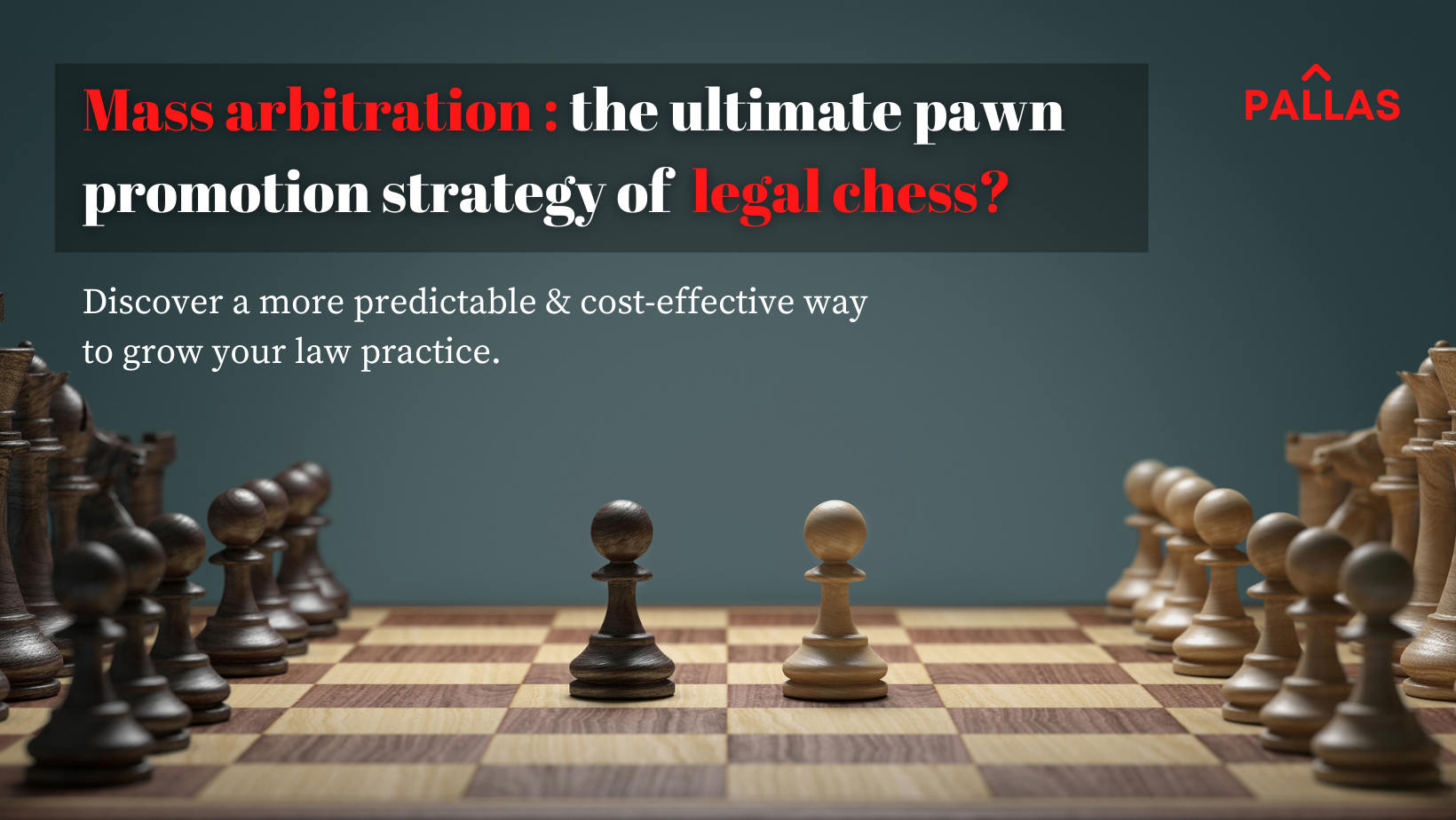Mass arbitration: the ultimate pawn promotion strategy of legal chess?
In chess, a pawn promotion occurs when a pawn reaches the farthest rank from its original square. Players can promote a pawn to another piece, including a queen, the most powerful piece in a chess game.
Pawn promotion can be a crucial move in an endgame scenario where only a few pieces are left on the chessboard.
In the business of law, just like in chess, intelligent strategies can lead to transformative results and allow pawn-like projects to transform into queen-like outcomes.
When attorneys analyze entry barriers to some popular practice areas (such as class action litigation or mass torts), they discover a very high cost of case acquisition combined with highly complex and expensive litigation.
The question arises: how do you promote your law practice to a competitive position without overwhelming financial investments and stressful, complex litigation?
While there may be more than one way to get there, the model our team at Pallas Enterprise has been working on is something we jokingly call “the mass arbitration gambit.”
It is a model that allows for a more predictable and cost-effective case acquisition and resolution in the consumer (plaintiff-side) space.
It starts with identifying a mass arbitration portfolio.
- You would want to look for a consumer law violation (such as a data breach, for example) that affects many people. The more people a particular violation impacts – the easier and cheaper it is to acquire these cases.
- When we look at mass tort case acquisition, we often see thousands of dollars spent per signed retainer. However, in mass arbitration, a cost of a case may vary from as low as $15 to as high as a few hundred dollars per case.
- Then you would want to look at the arbitration clause of terms and conditions that consumers sign with a specific defendant. If a company has a mandatory arbitration clause – they are a great candidate to become a defendant in a mass arbitration scenario.
In class action litigation, the litigation cost and the amount of work that goes into class certification and motion work can be extraordinary. Plus, not every attorney may serve as a class counsel. However, in mass arbitration, the barrier is significantly lower. The dispute resolution forum is private, and the amount of motion work and discovery is limited. Arbitration is a relaxed forum compared to the pressure of federal court litigation work.
In arbitration, settlements may often be reached within months, while class action or mass tort settlements may take years.
And while the economic value of individual arbitration cases for plaintiff-side attorneys is generally lesser than the value of similar class action cases, reaching a global settlement in a larger group (“portfolio”) of similar cases brought against one defendant can be equally or even more profitable.
Attorneys representing claimants are often required to file only a small number of cases from their portfolio in order to reach a global settlement, which makes portfolio dispute resolution accessible even for smaller-size firms with limited resources.
That is why we compare this legal business model to a pawn promotion in chess. A smaller investment on case acquisition and dispute resolution sides may lead to significant returns – if played right.
INTERESTED IN LEARNING MORE?
Our team at Pallas has helped attorneys
- generate, screen, and acquire;
- manage thousands of mass arbitration cases against rideshare companies, video conferencing providers, hotels, and other corporations.
Contact us today to learn more about the case acquisition process and available portfolios.
About the author:
Sofia Wadler is the founder of Pallas Enterprise.
Before starting the agency, she worked as a marketing director for one of the largest consumer-protection law firms in the U.S. Academically, she holds a Russian and a U.S. law degree as well as a German legal studies certificate.
Sofia founded Pallas with three principles in mind: 1. Efficiency. 2. Transparency. 3. Ethics. Her team provides marketing & automation services as well as competitor research insights that allow attorneys to grow their practices with unimaginable speed and efficiency.

